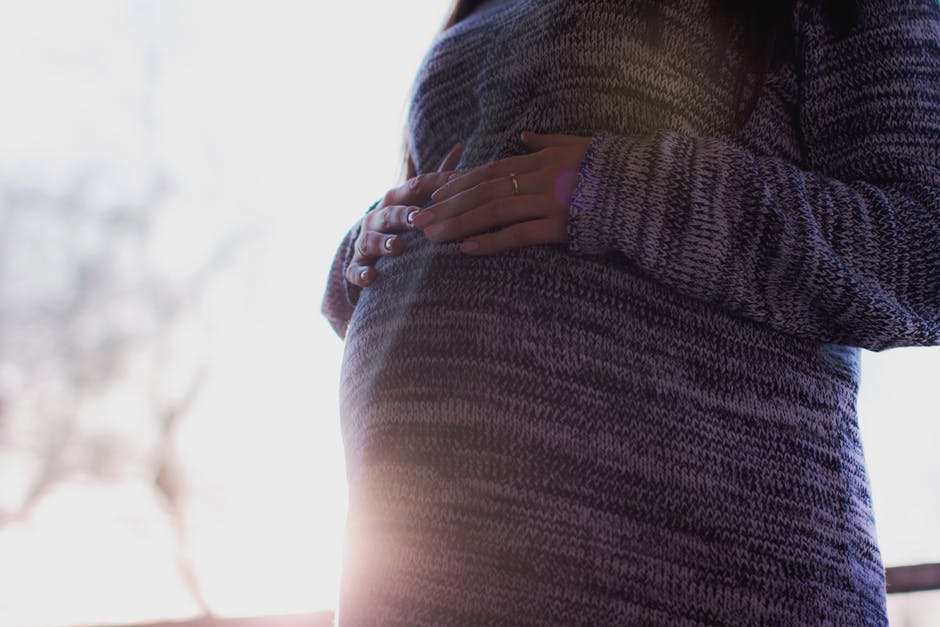Dr Ciaran Roarty of Scally McDaid Medical Practice Letterkenny shares an insight into morning sickness.
Lots of pregnant women feel sick or vomit during the early stages of pregnancy. Usually the symptoms are fairly mild and do not need specific treatment. In more severe cases however intervention may be needed.
What is morning sickness?
Most women who are pregnant will have some nausea in the early stages of pregnancy and may vomit.
Morning sickness isn’t always an entirely accurate name as often the sickness can occur at any time during the day. It is so common however that it is considered a normal, albeit unpleasant, part of being pregnant.
The nausea and vomiting are usually not constant and typically a pregnant woman may have these feelings for between one and four hours at a time. Some women may have more severe symptoms and more frequent or longer bouts of vomiting. Others may only experience nausea.
It generally starts before the 9th week of pregnancy and 90% of women report symptoms have settled by the 16th week. Some women however may experience symptoms throughout the entire pregnancy. It can be difficult to cope with and may interfere substantially with a woman’s day to day life. It occurs at a time when not everyone may know your exciting news so support from close family and friends is vital.
It can also affect your mood. Work and home life and may be particularly hard to cope with, particularly if there are other children in the house who need your love and attention. Support from your significant other is as important now as it will be later in pregnancy and after the birth.
What is Hyperemesis Gravidarum?
Less than 1% of pregnant women experience severe and prolonged sickness in pregnancy which is called Hyperemesis Gravidarum. This causes dehydration and weight loss and possibly vitamin deficiency.
A urine test performed by your GP will give an indication that this condition is present and it usually requires admission to hospital for intravenous fluids and other medications.
What causes it?
We are not entirely sure, though it is thought to be related to hormone changes in pregnancy. There are some risk factors which we know make it more likely.
These include:
- First baby
- Female baby
- Family history (ie mother or sisters with morning sickness)
- Twins/multiple births
- Previous predisposition to car sickness
- Stress
- A personal history of migraine in the past.
- Obesity
- Previous nausea while on the combined contraceptive pill.
- Being young!
Will it cause any harm to the baby?
Generally no. Your reserves are sufficient to feed and nourish the baby even when you cannot eat a lot. If you develop hyperemesis gravidarum and are not treated your baby may not be as heavy as he or she would otherwise be.
Are tests needed?
Usually only if symptoms are so severe that you are unable to keep anything down or you start to lose weight. Your doctor will routinely perform urine tests when you visit during your antenatal care and especially if they are concerned about your sickness.
Can I take anything to help?
Generally symptoms are mild so that no specific treatments are required.
Things that may help include:
Eating small but frequent meals. Some women find ginger biscuits helpful if taken early in the morning.
Cold meals may help if smells trigger nausea.
Foods containing ginger may also be helpful.
Avoiding triggers, if they are identified, is always useful. Some women find certain smells or stress may trigger.
Plenty of fluids. Again little and often helps. The aim should be to take at least 2 litres of water a day.
Rest – Tiredness may exacerbate symptoms.
Over the counter remedies are not usually advised in pregnancy because we don’t know how safe and effective they are in pregnancy. Herbal remedies are generally avoided in pregnancy for the same reason.
Sometimes anti-sickness medications are prescribed in severe cases.
Other vomiting causes:
Even though you are pregnant you may develop other conditions which cause vomiting so not all vomiting in pregnancy is morning sickness. For example, a urinary tract infection can cause vomiting.
See your doctor if you develop any symptoms that you are concerned about, particularly stomach pains, fevers, headache, dark urine or no urine in 8 hours, pain on passing urine, diarrhoea, jaundice (yellow tinge to skin and mucous membranes of the mouth or under the eyelids), blood in your vomit, fainting or vomiting/retching that does not subside.
The above information is intended as advice only and should you have any concerns contact your own Doctor.
Dr Ciaran Roarty MB BCh BAO MICGP DRCOG is a full-time GP at Scally McDaid Medical Practice , Scally Place, Letterkenny, Tel 0749164111
Tags:







